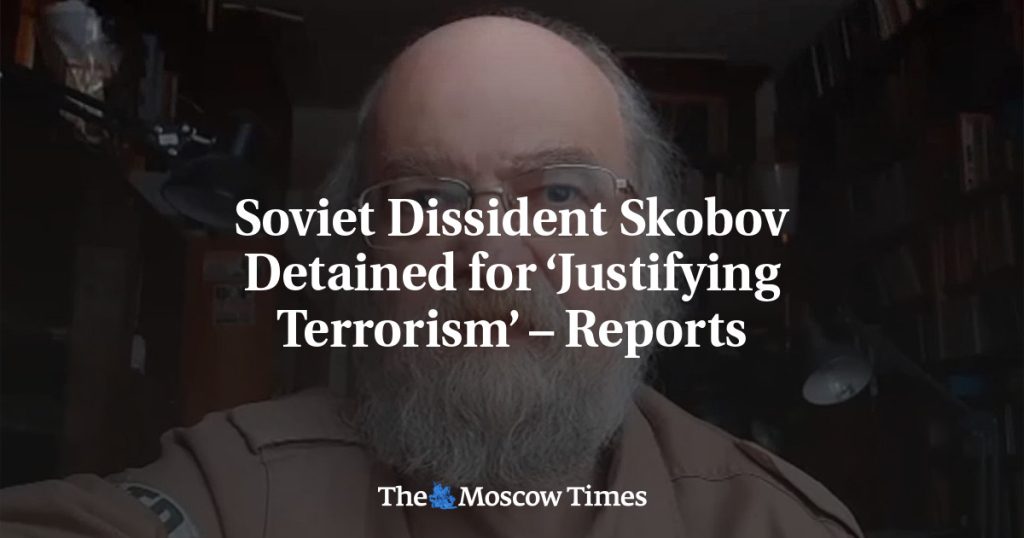Alexander Skobov, a Soviet dissident, has been detained for “justifying terrorism” in social media posts regarding the recent deadly concert attack outside Moscow. Skobov, who has a history of persecution by the Soviet regime for his anti-Soviet views, is accused of speculating about the perpetrators of the attack on his Telegram channel. The attack at Crocus City Hall claimed 144 lives and injured over 500 people, with the Islamic State claiming responsibility.
Skobov was detained at the home of human rights activist Yulyi Rybakov on Tuesday night, where authorities seized his phone and computer while preventing him from taking his diabetes medication. If convicted of justifying terrorism, Skobov could face up to seven years in prison. He was labeled a “foreign agent” by Russia’s Justice Ministry on the same day as the Crocus City Hall attack, despite being a vocal critic of Russia’s invasion of Ukraine and supporting paramilitary units made up of Russian nationals fighting for Ukraine.
Skobov’s detention is part of a broader crackdown on dissent in Russia, with the Free Russia Forum, a liberal opposition platform based in Lithuania, being labeled as “undesirable” by Russian authorities. Skobov is one of the few outspoken critics of Russia’s invasion of Ukraine who remains in the country despite the risks of facing criminal punishment under wartime censorship laws. His detention highlights the challenges faced by those who speak out against the Russian government’s actions both domestically and internationally.
The persecution of Skobov is reminiscent of tactics used by the Soviet regime, which had previously convicted and subjected him to punitive psychiatry for his anti-Soviet propaganda. The detention of Skobov for his social media posts about the Crocus City Hall attack demonstrates the Russian government’s willingness to silence those who speak out against its policies, particularly when it comes to issues of national security and terrorism.
Skobov’s case raises concerns about freedom of speech and human rights in Russia, as well as the treatment of dissidents and critics of the government. His detention for justifying terrorism reflects a broader trend of using vague and broadly interpreted laws to target individuals who express dissenting opinions or criticize state actions. This case underscores the challenges faced by activists and journalists who risk persecution for speaking out against government policies and human rights abuses.
The international community has condemned Skobov’s detention and called for his release, citing concerns about human rights violations and the targeting of dissent in Russia. As a prominent figure in the fight for democracy and human rights, Skobov’s case has brought attention to the ongoing crackdown on freedom of speech and political opposition in Russia. The detention of Skobov highlights the challenges faced by those who continue to speak out against the government’s actions and policies despite the risks of persecution and imprisonment.


